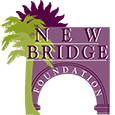Mental health disorders and addiction are common issues in the United States. Both require treatment and supportive care so that people can live healthy, productive lives. However, a co-occurring disorder can be difficult to diagnose and it can be challenging to ascertain when someone requires dual diagnosis treatment.
The symptoms of mental illness can mimic those of a substance use disorder. Additionally, addiction can make it tough for people to participate in treatment for mental illness or stick to an ongoing treatment plan. Many people use drugs or alcohol to self-medicate, which can mask their mental health symptoms and makes it appear they are only struggling with addiction. Finding a treatment facility that effectively treats mental health and addiction is critical to recovery and lifelong sobriety.
At New Bridge Foundation®, we understand how mental health affects addiction and have developed programs and services to treat co-occurring disorders. With over fifty years of experience in the field, we provide counseling and treatment options that will get you on the road to recovery in a safe, comfortable environment. To learn more about our services for those who are dually diagnosed, reach out to one of our San Francisco Bay-Area counselors by calling 866.772.8491 or through our convenient online form.
Signs of Dual Diagnosis
It can be difficult to determine if individuals have a mental health condition that underpins and fuels their addiction. Since many symptoms may overlap, it can be challenging to determine which symptoms result from the mental health issue and which symptoms are a result of their addiction. Some signs that may indicate a dual diagnosis are:
- Having a family history of mental illness
- Not enjoying life without using alcohol or drugs
- Using substances to cope with stress or anxiety
- Using substances after a traumatic event
- Withdrawing from everyday life
- Using drugs or alcohol to self-medicate
Many people who abuse drugs or alcohol have underlying mental health issues. About half of the people diagnosed with addiction also struggle with common mental illnesses like anxiety, depression, and bipolar disorder. Getting help for a dual diagnosis is crucial to recovering from addiction and treating mental health disorders. The sooner you start treatment, the better the chances of recovery.
Understanding Dual Diagnosis
People with a dual diagnosis can struggle to find the right combination of treatments to help them. People with a co-occurring condition sometimes receive treatment only for their addiction, which leaves them struggling with untreated mental health symptoms. Experts agree that what is most helpful is to treat both the substance use disorder and any other mental health disorders simultaneously.
Special skills and support are needed to figure out how each issue affects the other. Because co-occurring mental health issues and addiction can be complicated to treat, many people do not receive the treatment they need and deserve. Finding a treatment facility that is knowledgeable and skilled at treating dual diagnosis clients is essential for relapse prevention and a successful recovery.
Do I Need Mental Health Treatment, Addiction Treatment, or Both?
Struggling with a dual diagnosis condition for any amount of time can be exhausting and discouraging. People often suffer harm to their physical and mental health, and their education or work and relationships suffer as they attempt to manage their symptoms alone.
If individuals with a dual diagnosis receive treatment for their addiction only, they may relapse later because of their untreated mental health symptoms. Similarly, if individuals with a dual diagnosis receive care only for their mental health, their addiction may derail any progress they make. Dual diagnosis can be very complex, consequently, it is crucial to work with professionals who understand how to treat both issues.
Dual Diagnosis Treatment at New Bridge Foundation®
At New Bridge Foundation®, we believe in treating the mental health issues that may affect addiction. We also understand that there is not a one-size-fits-all solution for each person’s needs. Our experienced counselors create an individualized treatment plan for each client who enters one of our programs. That plan may include:
- Individual counseling
- Group counseling including co-occurring disorders group
- Coping skills for managing dual diagnosis
- Relapse prevention techniques
- Cognitive-behavioral therapy
- Family education and support
- Discharge planning including aftercare
Reach Out to New Bridge Foundation® Today
If you suspect that you or a loved one suffers from both mental health challenges and addiction, find out how dual diagnosis treatment at New Bridge Foundation® is the best option. We are conveniently located in the San Francisco Bay Area, and also specialize in helping active duty military and veterans suffering from dual diagnosis by providing the treatment options best suited for their mental health and addiction needs.
Find out more about our dual diagnosis treatment center by calling 866.772.8491 or using our online form to speak with a counselor today.







